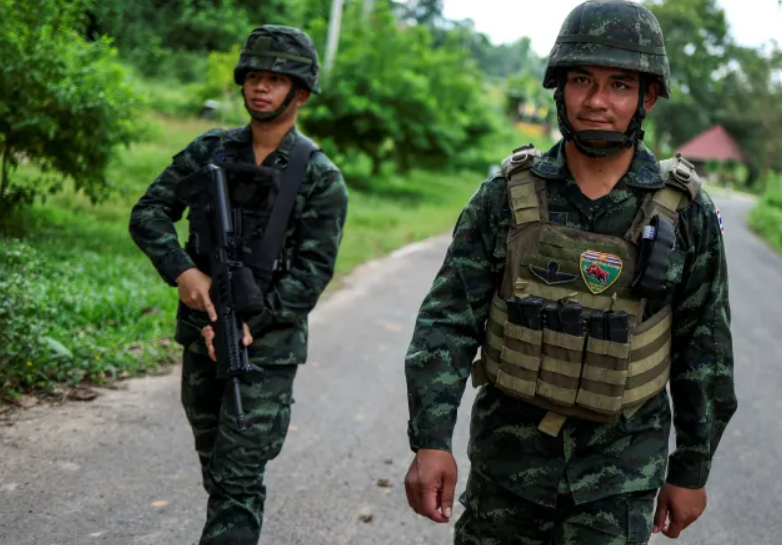Published on November 12, 2025 | By State Correspondents

In a serious diplomatic development, Thailand has announced the suspension of its ceasefire agreement with neighboring Cambodia following a landmine explosion along their disputed border in early November 2025. The incident resulted in injuries to two Thai soldiers and has rekindled hostilities in a region that has seen recurring conflict for decades.
The ceasefire deal, brokered earlier this year and intended to bring lasting peace after violent clashes that killed dozens in July 2025, included provisions such as the release of prisoners and the removal of heavy weapons and landmines. Thailand’s decision to halt the implementation of the peace accord marks a significant setback to diplomatic efforts and raises concerns about a renewed cycle of violence along the contentious border.
Background of the Border Conflict
The Thailand-Cambodia border dispute, particularly around areas near Preah Vihear temple and other contested villages, has simmered for years with intermittent skirmishes and artillery exchanges. The crisis escalated in July 2025 when armed clashes killed several soldiers and civilians, displacing hundreds of thousands. After international mediation, both countries agreed to a ceasefire aimed at halting hostilities and initiating diplomatic dialogue.
However, tensions reignited in November with the landmine blast near Ubon Ratchathani province, which Thailand attributes to Cambodian actions. Cambodia, on its part, maintains its commitment to peace and denies involvement in the recent violence, calling for renewed talks.
Implications and International Response
The suspension of the ceasefire agreement poses risks of further military escalation and destabilization of the border region. The Association of Southeast Asian Nations (ASEAN) and global powers have expressed concern and urged both sides to resume dialogue and refrain from provocative actions.
The rising tensions carry implications for regional security and cooperation, making diplomatic resolution an urgent priority to avoid renewed conflict impacting civilian populations and bilateral relations.







